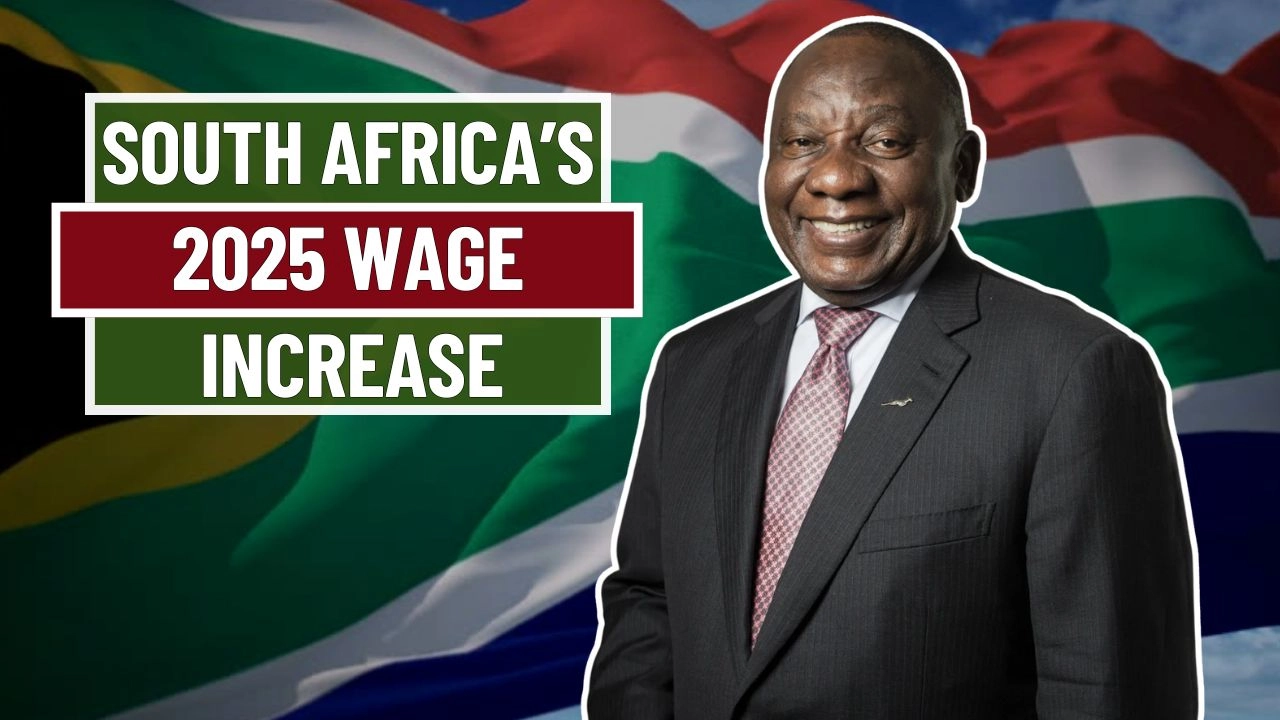In a major effort to tackle wage inequality and stimulate financial progress, South Africa has confirmed sweeping salary and allowance increases set for 2025. These new measures, affecting both public and private sectors, are designed to strengthen economic resilience and support millions of workers with improved earnings and financial benefits.
National Minimum Wage Sees Fresh Climb in Early 2025
The national minimum wage will rise from R27.58 to R28.79 per hour. This 4.4% uplift is a direct response to the need for better compensation among low-income earners and reflects the government’s intention to support vulnerable wage groups. This translates to approximately $1.55 per hour and is expected to benefit a wide demographic of the working population.
Government Workers Secure Salary Progression
Public sector employees including educators, healthcare workers, law enforcement personnel, and administrative staff will receive a 5.5% increase in wages starting from April 2025. This successful negotiation by public service unions aims to retain critical skillsets and promote stability across essential services.
Benefits for Employees Go Beyond Basic Salaries

In addition to basic wage increases, various employee allowances are set to improve throughout 2025. The housing allowance will increase from R1,784 to R1,900, with an additional review planned for July of the same year. Transportation allowances will also be recalculated mid-year, responding to fluctuations in fuel prices. Moreover, both danger and special danger allowances are scheduled to rise, including a notable boost to police service benefits.
Sector-Specific Growth Within Private Enterprises
Private sector workers will witness salary adjustments shaped by sectoral agreements, inflationary data, and individual employer policies. Notably, mining company Sibanye Stillwater has agreed to increase skilled worker wages by 5.5%, along with a R900 monthly raise for workers in lower job categories. Industries such as retail, hospitality, and services are also expected to implement wage hikes based on union settlements and economic conditions.
Timeline for Rollout Across Employment Sectors
Public employees can expect to see their adjusted earnings reflected in their April payslips. Private sector companies will activate wage changes from March through June, depending on specific employment agreements and business cycles.
Broader Economic Ripples Expected from New Wage Policy
Experts believe these increased wages may result in a rise in consumer spending, potentially lifting the country’s GDP by around 1.2%. While this outlook is positive, there are concerns that smaller businesses might struggle with the new wage standards unless provided with phased solutions or financial assistance from the government.
How Workers Can Confirm Their Wage Adjustments
To ensure clarity and transparency, employees are encouraged to engage directly with their employers or HR departments to determine their eligibility for the 2025 wage increases. Unionized workers should consult their representatives to understand the specific adjustments applicable to them. For more in-depth updates, the government’s official portal remains a reliable source of information.
A Nationwide Step Towards Fair Pay and Financial Strength
The wage increases introduced for 2025 mark a pivotal chapter in South Africa’s labor landscape. Through a combination of higher wages and improved allowances, the government seeks to offer stronger financial footing for its workforce. Although implementation methods may vary by sector, the unified goal is to uplift workers, reduce income inequality, and encourage long-term economic growth across the country.


